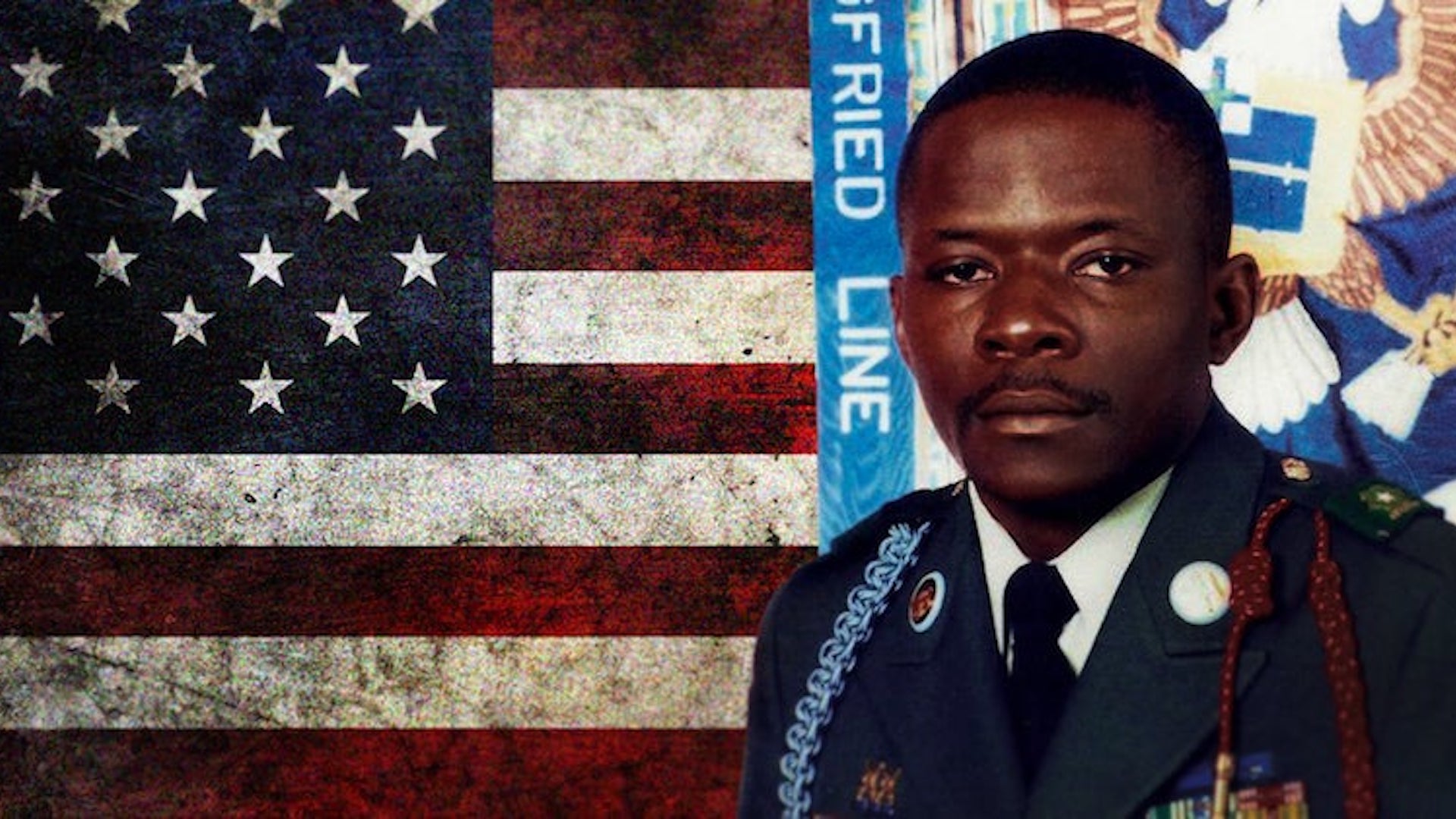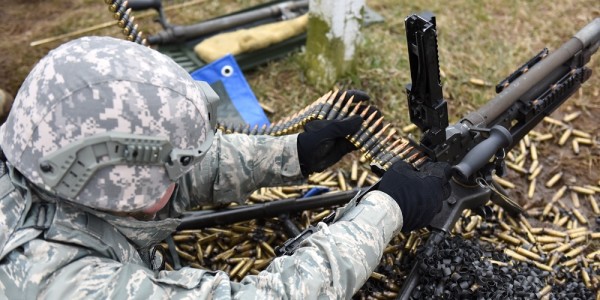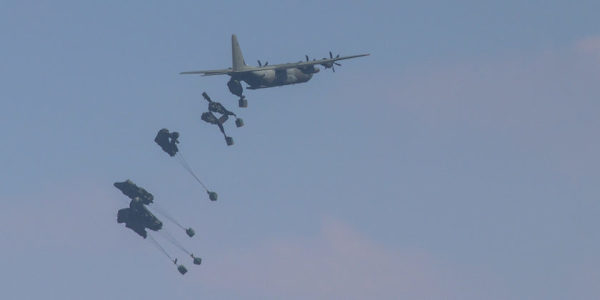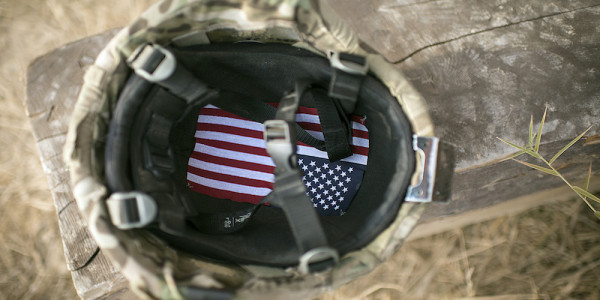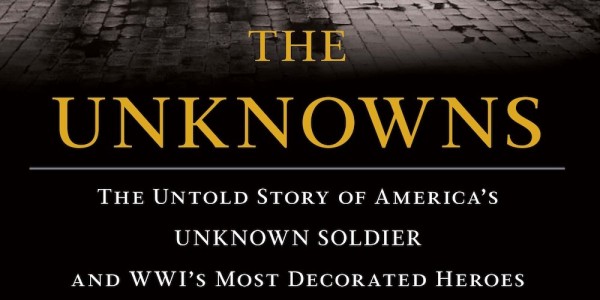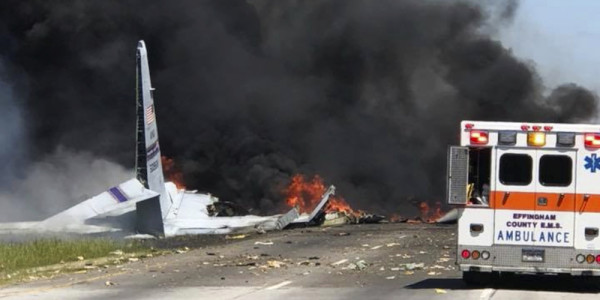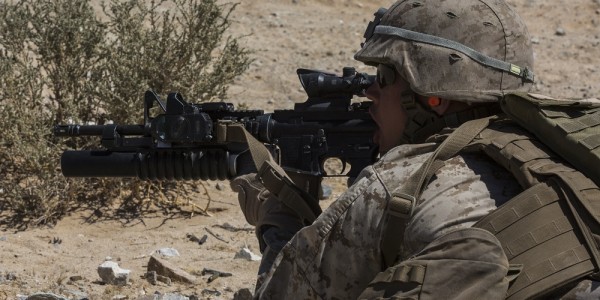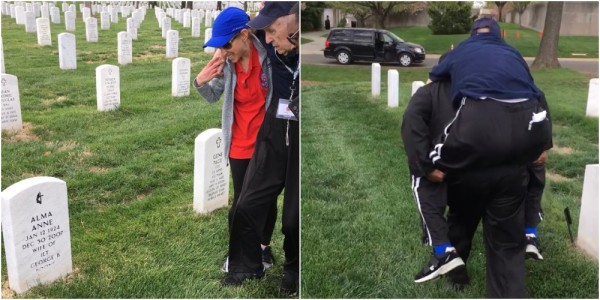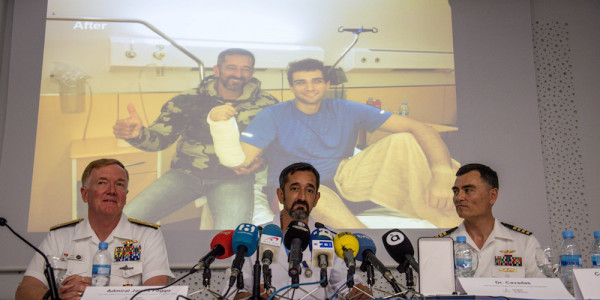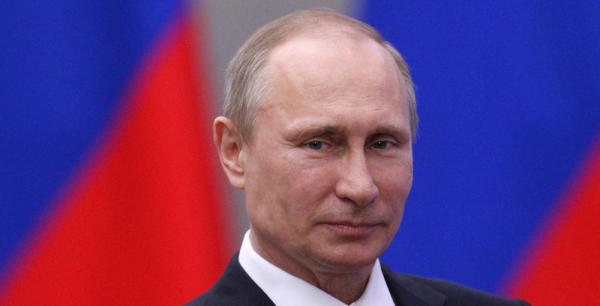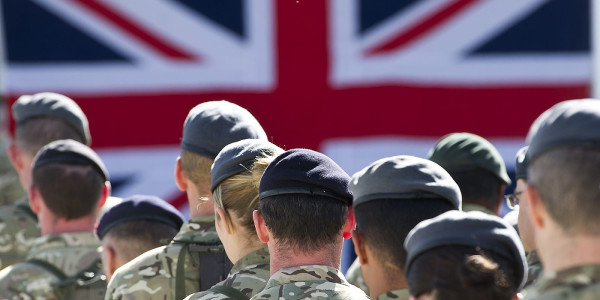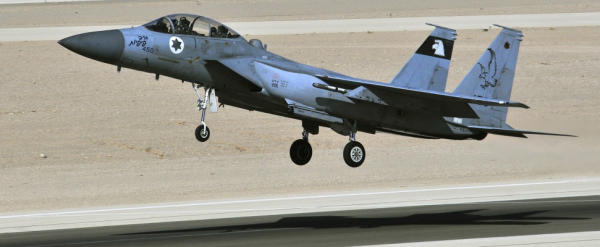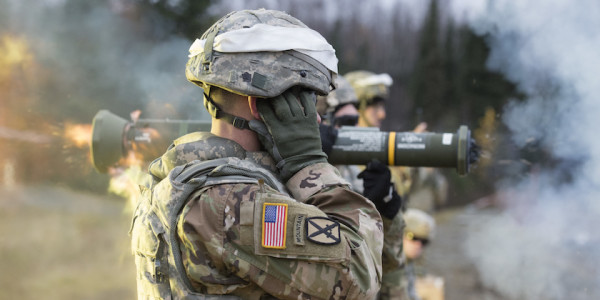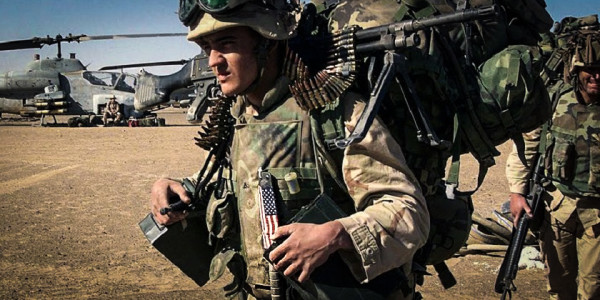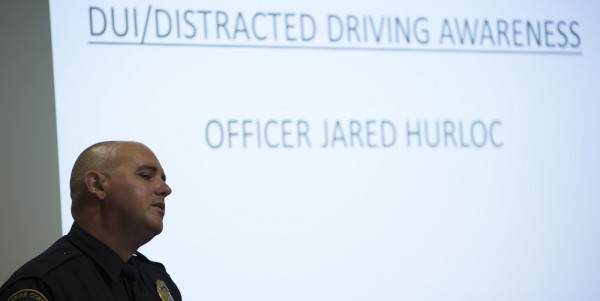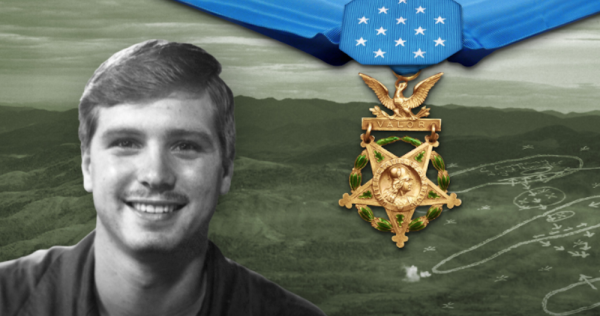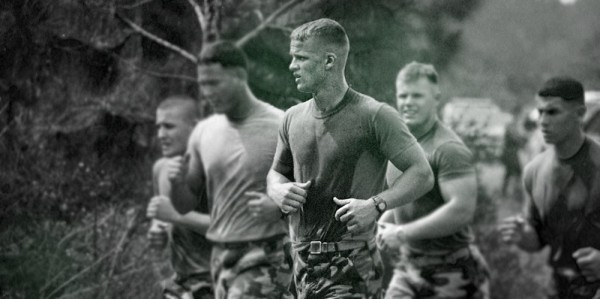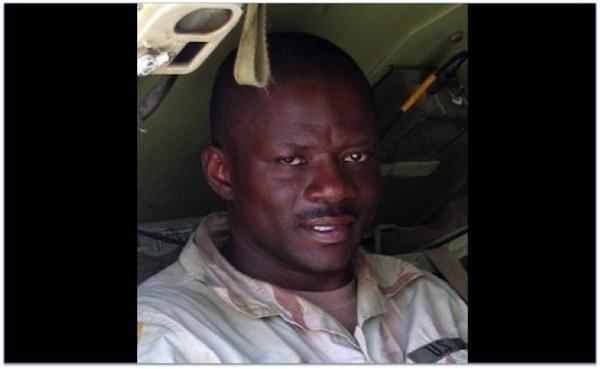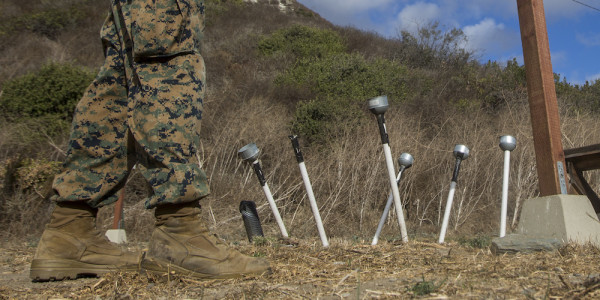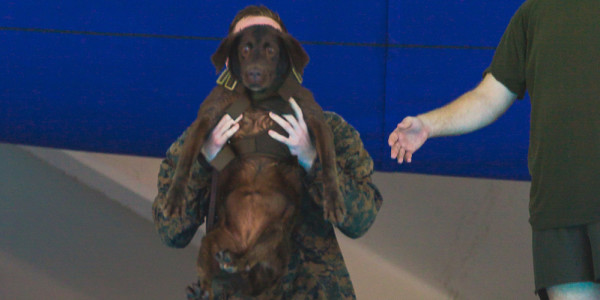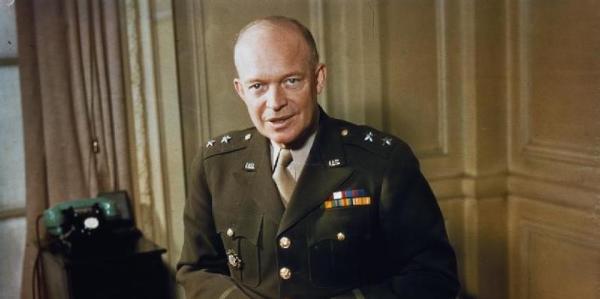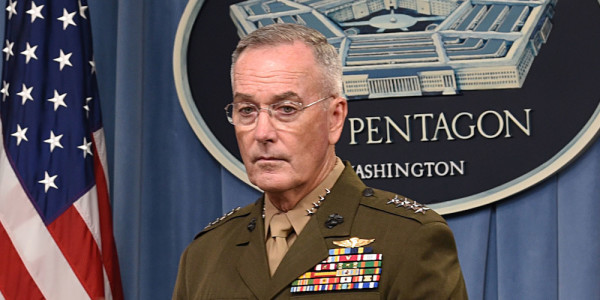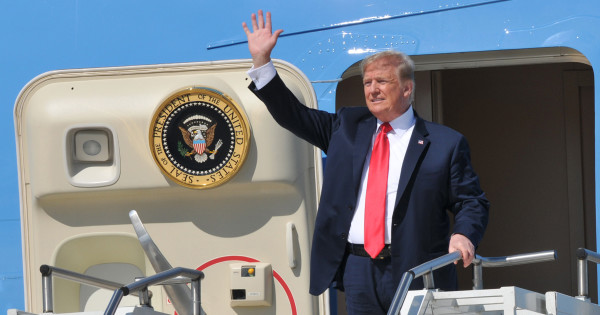The Pentagon has recommended posthumously awarding the Medal of Honor to Army Sgt. 1st Class Alwyn Cashe for heroically saving his fellow soldiers from a burning vehicle in Iraq, Task & Purpose has learned. The award package for the nation’s highest award is now awaiting the president’s signature.
Army Secretary Ryan McCarthy and Acting Defense Secretary Christopher Miller both endorsed the nomination, a defense official told Task & Purpose, adding that there was no White House opposition and no reason to believe the president would not approve the nomination. The official, who spoke on condition of anonymity due to the sensitive nature of Medal of Honor award nominations, added that a potential award ceremony would likely take place before Trump leaves office on Jan. 20.
A second defense official familiar with the matter said the official White House announcement is expected on Friday.
As of Wednesday, the White House had not officially announced whether President Donald Trump has approved Cashe’s Medal of Honor. The White House declined to comment for this story.
The official endorsement is one of the final steps in completing a years-long effort to get Cashe the Medal of Honor. Cashe was posthumously awarded the Silver Star for his heroic actions on Oct. 17, 2005, during a deployment to Iraq.
On Oct. 17, 35-year-old Cashe was in a Bradley Fighting Vehicle conducting route clearance in Daliaya, Iraq, when the vehicle hit an improvised explosive device. “The blast ignited the fuel cell on the vehicle, causing fuel to spew everywhere,” Cashe’s Silver Star citation reads. “The vehicle came to a stop and immediately erupted in flames.”

Cashe was slightly injured, and became drenched in fuel. Despite this, he immediately went to help evacuate the driver, who was on fire. Cashe “extinguished his flames,” and then went back again. And again.
At one point, the flames spread to Cashe and “gripped his fuel soaked uniform.”
“Despite the terrible pain, Sergeant First Class Cashe placed the injured soldier on the ground and returned to the burning vehicle to retrieve another burning soldier; all the while, he was still on fire,” the citation says.
Ultimately, 10 soldiers were injured and the squad’s translator was killed. Cashe’s injuries were the worst, the citation says, after he received second and third degree burns on 72% of his body.
Cashe died on Nov. 5, 2005, at the Brooke Army Medical Center in San Antonio.
The push to get Cashe’s Silver Star upgraded to the Medal of Honor received support from then-Secretary of Defense Mark Esper in August 2020. Other people who have pushed for Cashe to finally be recognized for his heroism include Lt. Gen. Gary Brito, his former commander, and Reps. Dan Crenshaw (R-Texas), Michael Waltz (R-Fla.) and Stephanie Murphy (D-Fla.)
President Donald Trump signed a bill into law last month waiving a requirement a Medal of Honor be approved within five years of the heroic action.
Cashe’s sister, Kasinal White, told Military.com that she received a call from the Pentagon saying an official request was made to the White House. “We’ve heard that the official request has been made,” White told Military.com on Tuesday. “We’ve also heard that everyone feels it will be signed [by President Donald Trump] rather quickly. After 15 years, ‘rather quickly’ works for me.”
Video: John Chapman’s Medal Of Honor Heroics In Afghanistan
Featured photo: Sgt. 1st Class Alwyn Cashe.
Correction: Lt. Gen. Gary Brito’s rank was corrected from Maj. Gen. to Lt. Gen.

